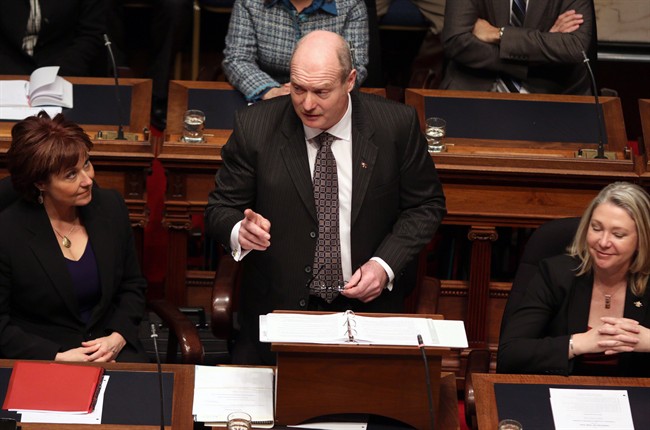VICTORIA – A prominent B.C. businessman phoned me the other day, wanting to know who, exactly, “ran” the B.C. government.

He knew enough of politics to know the answer wasn’t necessarily Premier Christy Clark. While her predecessor, Gordon Campbell, very much “ran” his government in that he had his hands on all kinds of levers, she has opted for a more hands-off approach.
Clark delegates a lot of authority and control to key cabinet ministers, deputies and senior staff.
But there appears to be one key figure who Clark allows to steer the B.C. Liberal ship more than anyone else, and he was on full public display last week.
I’m talking about Finance Minister Mike de Jong.
He controls the government’s purse strings and, as government house leader, its legislative agenda as well. His cautious approach to budget-making means he keeps a tight rein on government spending, which means fellow cabinet ministers must answer to him for their budgets.
While there is no question that Clark is very much in control of her government, de Jong has emerged as a particularly influential member of her inner circle (which includes LNG Minister Rich Coleman, Jobs Minister Shirley Bond, and staffers Dan Doyle, Michelle Cardario, Chris Gardener, Neil Sweeney and Ben Chin).
De Jong is in charge of delivering what is the B.C. Liberal government’s number one priority every spring: a balanced budget. Everything else takes a back seat to that accomplishment, and as a result all government programs (i.e. the size and funding of them) flow from that balanced budget.
The veteran politician has become a sort of “Dr. No” in government, as he insists on a frugal approach to managing government finances. That means a lot of spending requests don’t get far with him.
“Bending down the health care spending curve” was Job 1 when de Jong took over the finance portfolio a few years ago. He was well aware that if the health-care budget continued to enjoy lofty increases such as five or six or seven per cent that any hopes of balancing the budget would be dashed.
So he has insisted that annual increases to the health budget had to come in at less than three per cent (which translates to roughly $500 million a year). There were widespread doubts this could be accomplished, but it has happened for several years now – and that’s a huge reason why the budget can be balanced at the end of the fiscal year.
And it’s another reason why de Jong, more than anyone other than the premier herself, has the most noticeable personal stamp on this government.



Comments